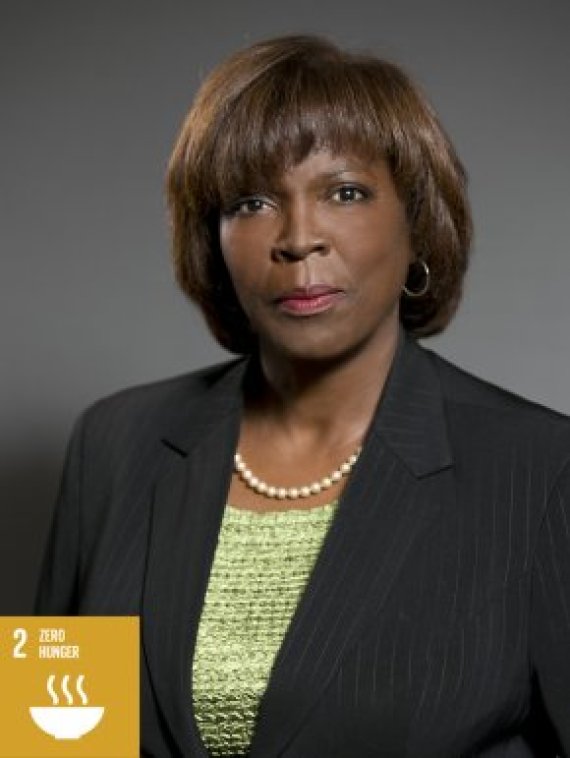©Ertharin Cousin
How are you involved in achieving the SDGs, in particular eradicating hunger?
‘As the UN World Food Programme, we have helped 80 million people each year by improving their access to food. I’m now a lecturer, at Stanford University among other locations, and my role is much more that of an information broker. I raise political issues and intervention options to create sustainable development and sustainable food systems. An important aspect is for the private sector to also be interested in achieving sustainable development.’
In your opinion, which concrete action or measures will have a significant impact on achieving these SDGs?
‘A key issue for development is cooperative action. You need all parties on board: local and national governments, international organisations, the private sector, the academia and the development NGOs. This is not only important for developing countries but also for the United States. Even in the States, several communities don’t have access to nutritious food. They live indeed in “food deserts”. Sometimes, healthy food is available but unaffordable. Moreover, communities do not always know the difference between healthy and fast food, so education is also an important issue to realise sustainable food systems.’
‘A good example of cooperative action is a project of the Dutch company DSM in Rwanda. DSM opened a factory producing highly nutritious food for children on the basis of maize. The project is a collaborative effort of DSM, the Rwandan government, donors (such as the Dutch government) and a partnership of 10,000 smallholder farmers who grow the maize. There are many beneficiaries: DSM is producing food, children get access to healthy food, local farmers produce it. This is what cooperative action can do.’
On 30 and 31 August, WUR will be hosting the SDG conference to find out how we can implement the sustainable development goals of the United Nations. Senior and young speakers from around the world will be giving speeches and attending workshops. What do these participants want to achieve?

